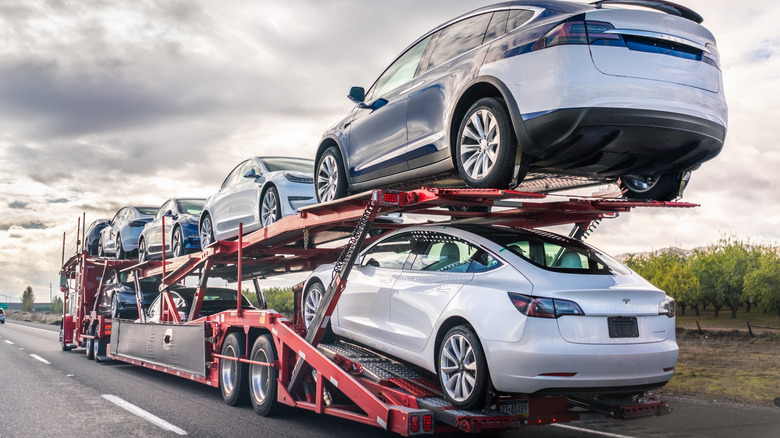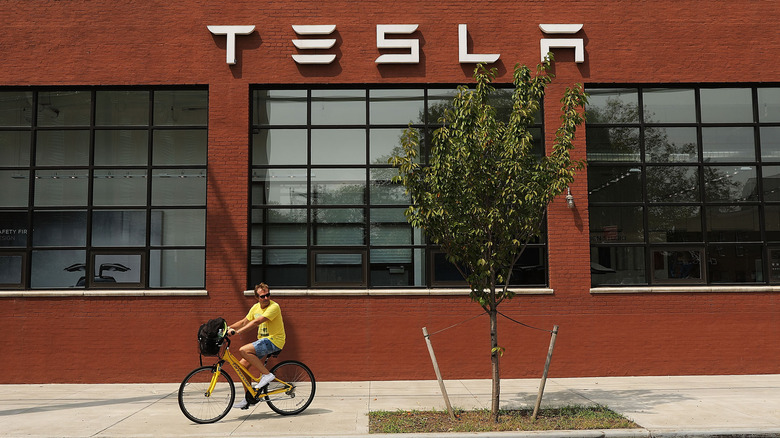The Unexpected Bottleneck Holding Back Tesla Deliveries
Tesla, everyone's favorite (or least favorite) EV company, is no stranger to production issues. For example, the Tesla Model X is a startlingly quick SUV with a price tag of well over $100,000 with all the boxes checked — but its fancy falcon doors hide the fact that several new Model Xs look like they were built on a Friday afternoon seconds before the shift at the factory ended. That's not a good look for a company that claims to be the alpha and omega of EVs.
When it launched in 2017, the Tesla Model 3 was slow to arrive in customers' driveways due to the fact that Tesla couldn't make it fast enough and was opting to assemble some components by hand. Assembly by hand is usually relegated to hypercars with very low production numbers and not a car intended for mass production. But today, Tesla announced it was facing another production bottleneck and this one may be the company's own doing.
Shooting themselves in the foot
According to a press release from Tesla, the brand is facing a huge delivery problem: It can't get vehicles to customers in a cost-effective or timely manner. Tesla says vehicle delivery has "skewed towards the end of each quarter due to regional batch building of cars." That means that the 365,000-plus vehicles Tesla made in Q3 were likely produced during the end of the quarter. The company then needed to procure transportation for well over a quarter-million cars all at once. No wonder there's a bottleneck. To be fair, part of that bottleneck can be blamed on global parts shortages that many other automakers are dealing with.
In a webcast, Tesla stated that it plans to "achieve 50% average annual growth in vehicle deliveries" over a "multi-year horizon." If the Tesla Semi and Cybertruck delays are any indication of what's going on a Tesla, it may be a while before Tesla gets a hold on its production and delivery woes.

